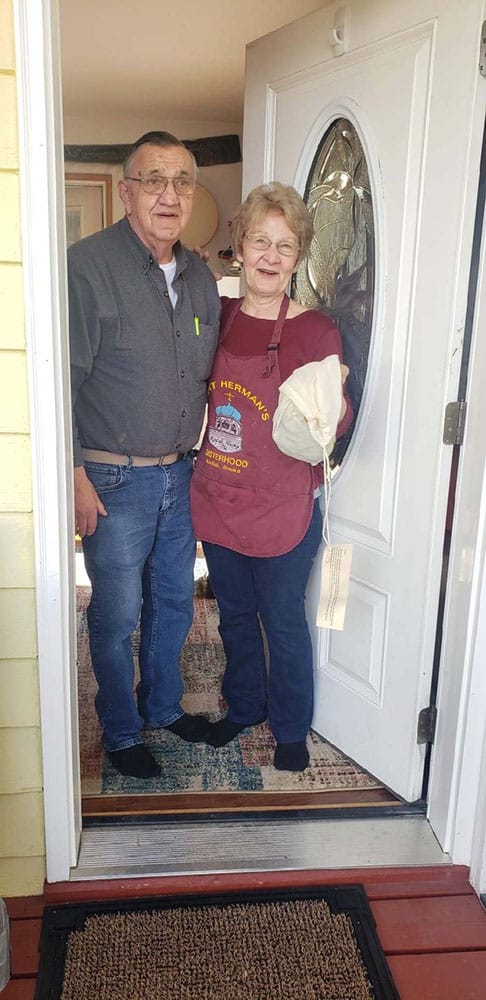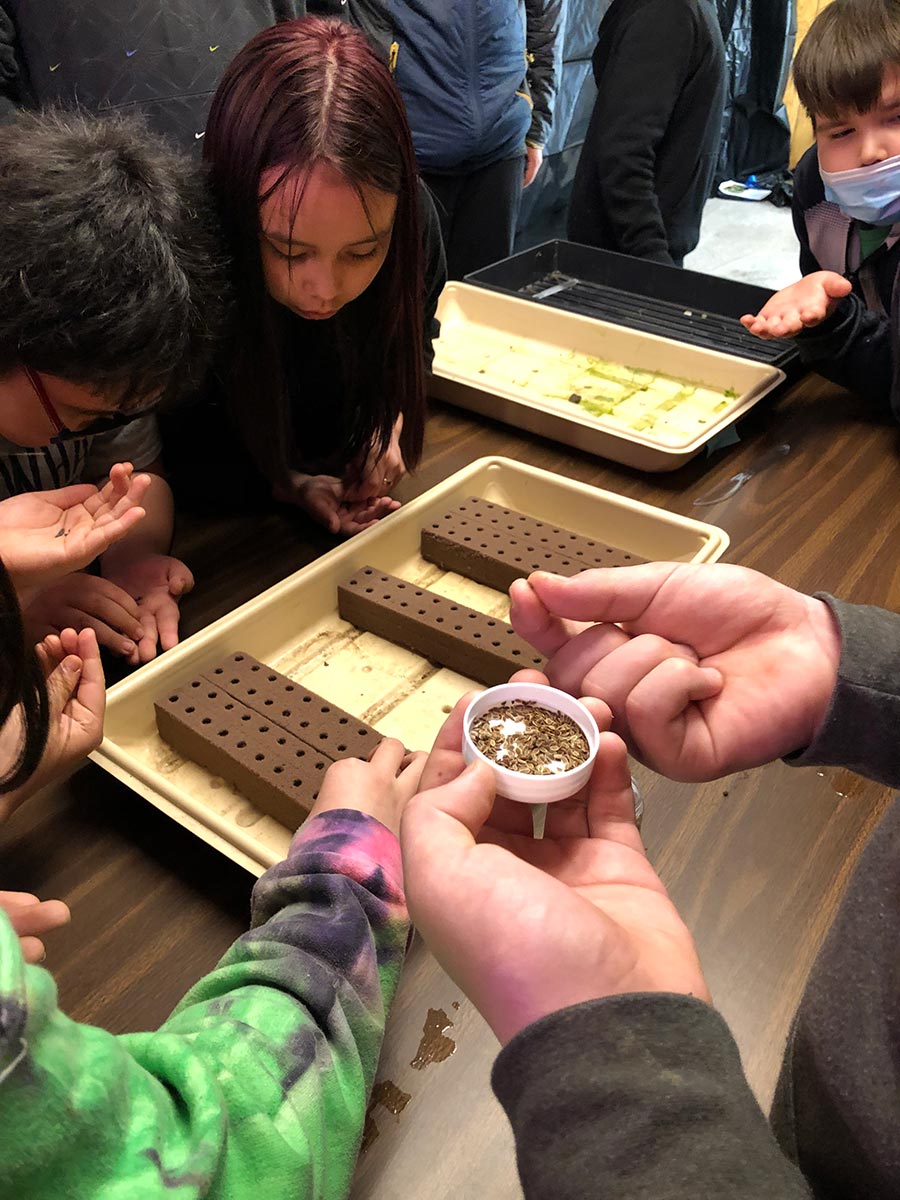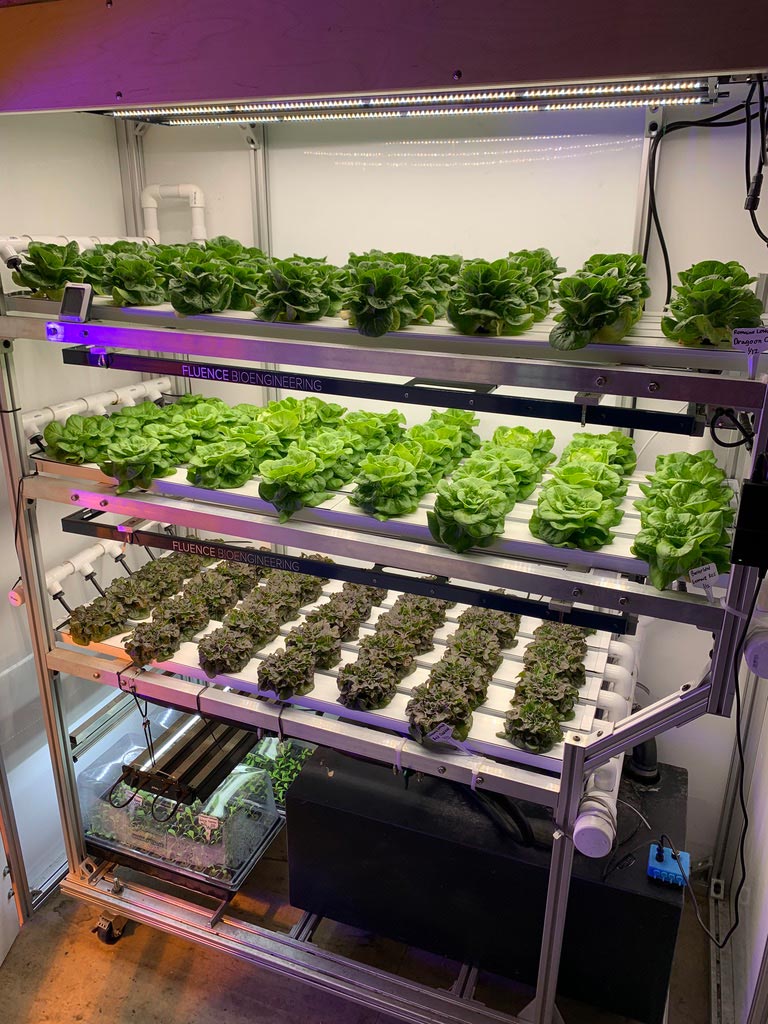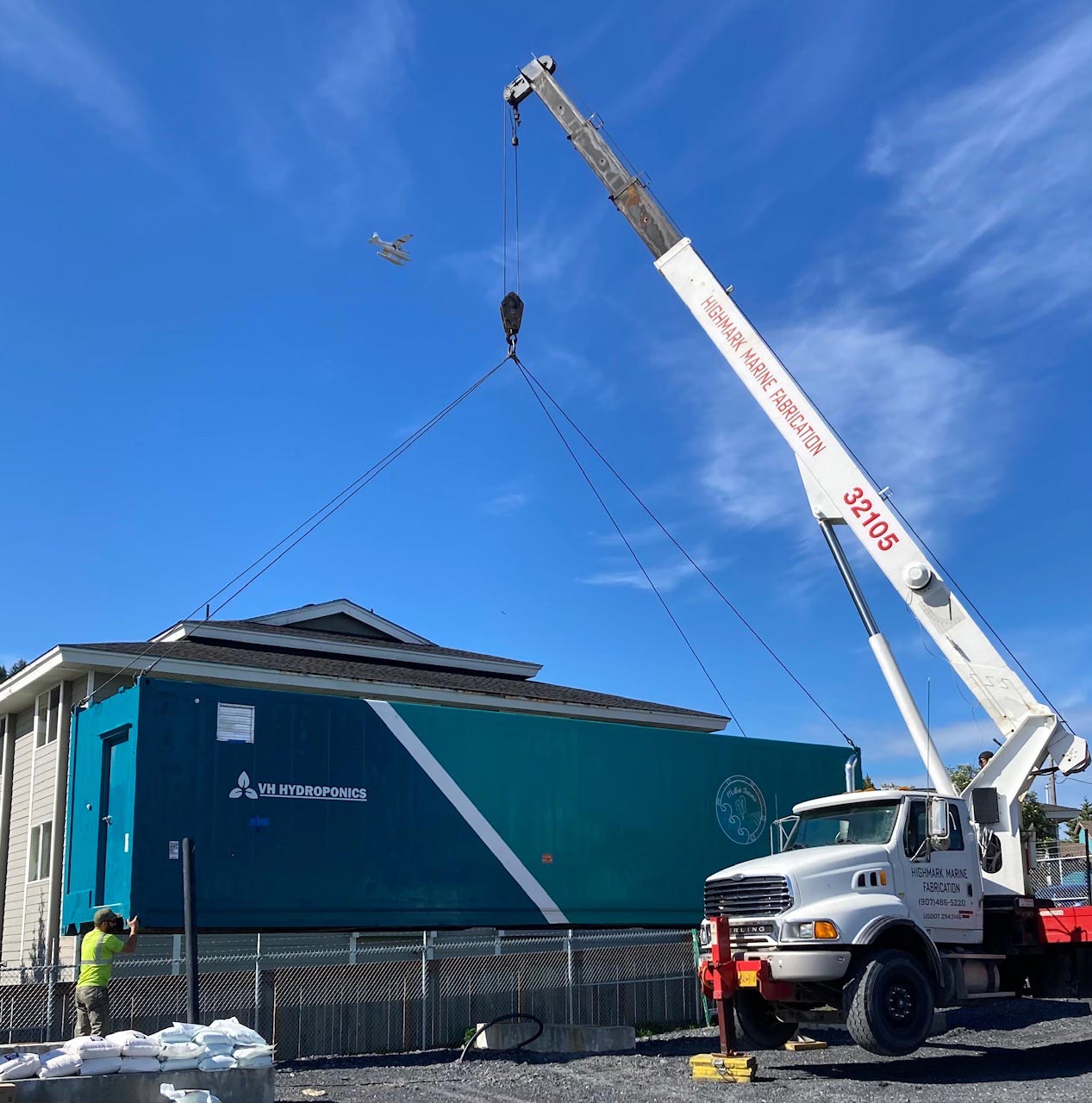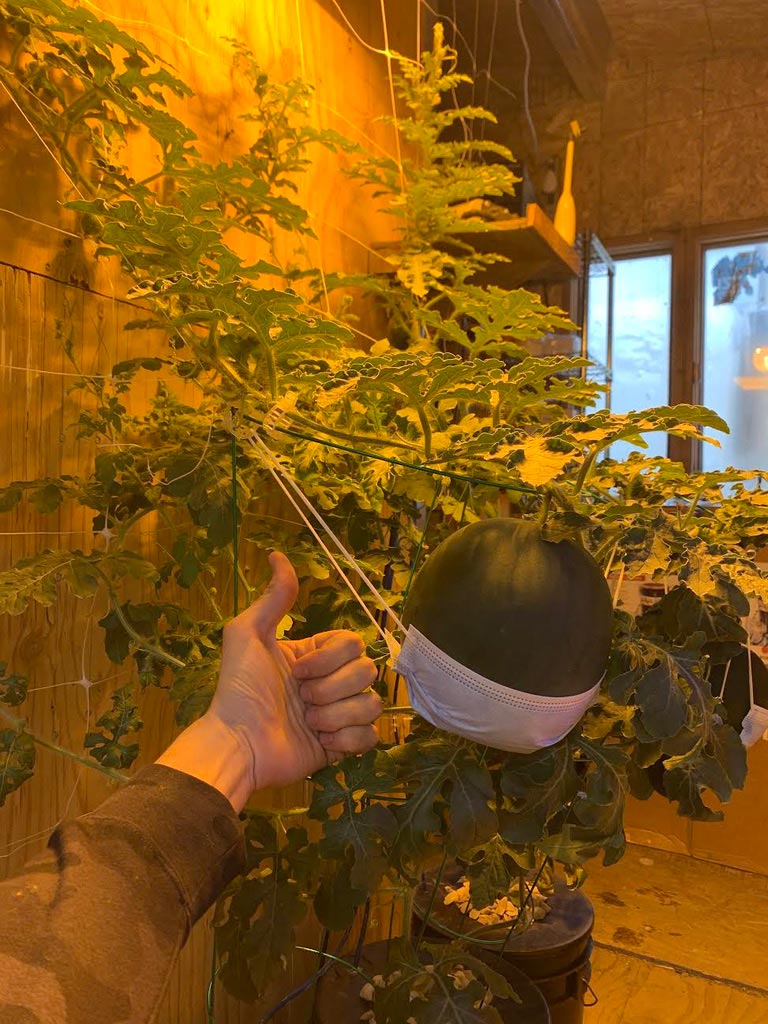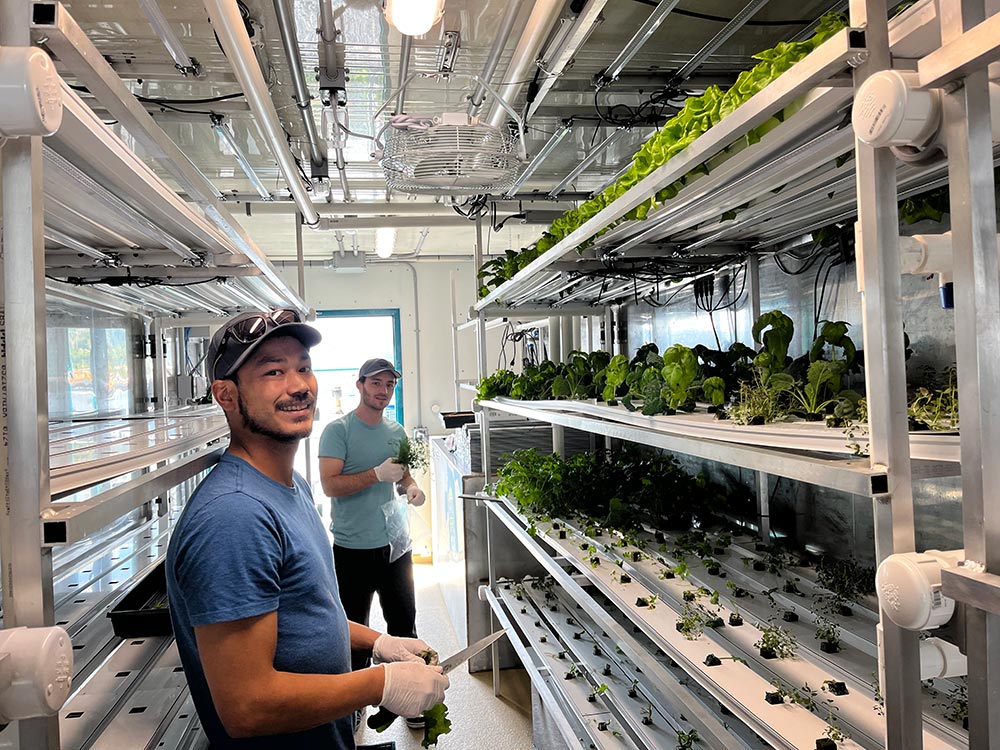
Seasonal soil farms are the foundation of our Alutiiq Grown farms. Healthy, robust soil will provide a variety of crops with dense nutritional content that taste good! But, soil farms are limited to Kodiak’s short growing season given our northern wet and cold maritime climate. And, seasonal farms face greater sustainability challenges in hiring and retaining trained farming staff and becoming financially viable over time.
KALI worked together with our regional planning team that included community, tribal and Alaska Native corporation partners and our Alutiiq Grown farmers to explore the feasibility of hydroponics as a means to move towards year-round food production in our region’s remote communities. Two Kodiak-based tribes, the Native Village of Afognak and Tangirnaq Native Village, joined these planning efforts. These two tribes view hydroponics as their only current opportunity to establish food production as they do not have access to land suitable for soil farming.
Together we identified three major requirements for hydroponics to be feasible for our communities. 1) Equipment must be capable of operating in Kodiak’s off-road system communities, be relatively simple to train on and operate, and demonstrate efficient use of electrical power, 2) Technical training and support must be provided in-region with the goal to develop a collaborative regional team of trained hydroponic farmers capable of training new farmers , and 3) Financial modeling must be based on phased-in production and demonstrate long-term economic feasibility.
Successful Alaska hydroponic farms were interviewed to better understand their operating models and the challenges they have encountered. And equipment that met our stated requirements was identified and reviewed for feasibility. The resulting feasibility study included a development plan for phased-in hydroponic production combined with a training program for the communities of Larsen Bay, Old Harbor, Port Lions, Ouzinkie and the two Kodiak tribes.
KALI received funding in 2020 through the US Department of Health and Human Services Administration for Native Americans Program to build out hydroponic production over a 3-year period based on our development plan. Self-contained hydroponic growing cabinets were installed at each of the participating farm sites and production began in early 2021. A very large containerized growing system (CGS) farm was installed in Kodiak with production start-up in June of 2022. Additional hydroponic cabinets to further boost production are being installed in 2023. Production is planned so that households in each community will be able to receive fresh produce on a weekly basis
The selected hydroponic equipment is manufactured by an Alaska based company, Vertical Harvest Hydroponics (VHH). Learn more about VHH
Our Hydroponic Growers are supported by a comprehensive training and technical assistance program that matches our communities’ needs and is delivered in-region. This includes a series of webinars to ground growers in the basics of hydroponics, technical site visits focused on increasing production and troubleshooting issues, and exposure to other more experienced hydroponic growers.
KALI and our Alutiiq Grown farmers are a learning community centered on growing food and sharing with our Elders and families. The ability to deliver fresh, nutritious produce on a weekly basis in our communities that previously had to import all of their perishable food is a major achievement. We share hydroponically grown food through regular gatherings and cooking classes to encourage appreciation of vegetables that up to now were not available locally in our communities. We also deliver fresh produce directly to Elders.
Our Alaska Native partners have provided generous matching funds to support youth interns who learn and work next to our trained hydroponic growers. And several communities have placed the hydroponic cabinets in their schools to provide hands-on learning with our growers.
Suupet Neregkwarluki- We are feeding our people!
